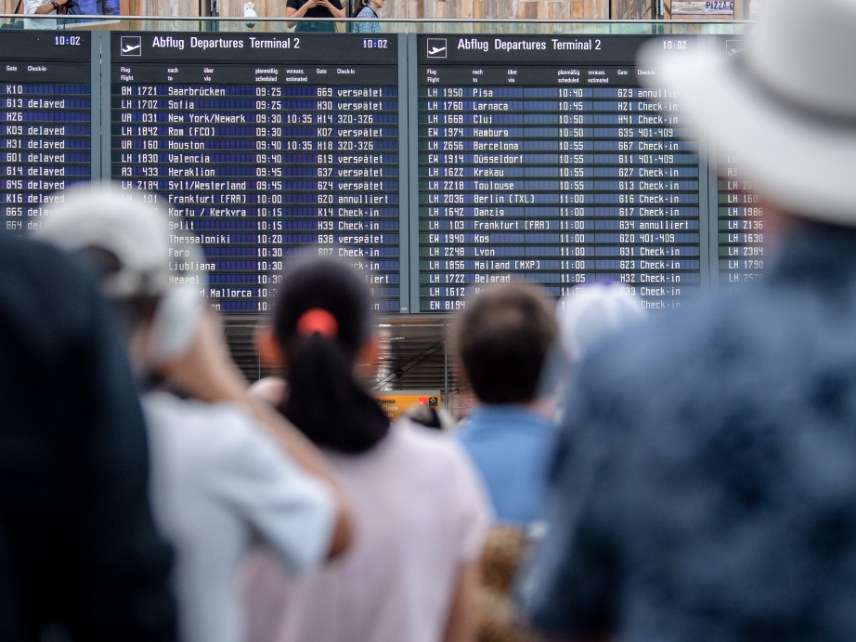Secret Surveillance of Americans Traveling by Air Found Nothing, Will Continue
Air marshals have snooped on about 5,000 of us since March-and not because they suspected any of those people of specific crimes.

Federal air marshals have secretly stalked about 5,000 Americans since March. None of these people were suspected of any specific criminal or terrorist activities, and the surveillance didn't turn up any evidence of criminal or terrorist activities.
Nevertheless, the Transportation Security Administration (TSA) says the program should and will continue.
The Boston Globe reported over the weekend that the TSA's program, called "Quiet Skies," tracks fliers who weren't even on terror watch lists, based on a vague concept of suspicious behavior. The air marshals themselves object to the program, and their union would like them assigned elsewhere rather than having to follow these people around. Some members of Congress have complained too, saying they weren't been informed about the launch of this program. So this week, TSA officials have been having closed-door meetings with various lawmakers.
The TSA wouldn't acknowledge the program existed until the Globe revealed it. Now that it's been publicized, they're quick to defend it. Spokesman James Gregory said Monday, "The program analyzes information on a passenger's travel patterns, and through a system of checks and balances, to include robust oversight, effectively adds an additional line of defense to aviation security."
It has other defenders, too. The Washington Post's editorial board gave it a quasi-stamp of approval with the "If it's done right" disclaimer, noting that this system would allow the TSA to deploy air marshals to keep track of suspicious people rather than sticking them on large airliners to keep tabs on entire flights even when there's no sign that anything may happen:
Among other things, the marshals employ behavior detection techniques similar to those that TSA agents use to evaluate all passengers at security checkpoints, such as watching for signs of excessive nervousness. Since airliners are spaces where no one expects privacy, it is unlikely the marshals' scrutiny constitutes an illegal search. If the 90 days pass without incident, the scrutinized passengers are removed from the list and their files are closed and later purged, the TSA spokesman said.
The editorial highlights a behavior that the average person would find suspicious—"excessive nervousness." But in practice, the TSA "behavior detection techniques" can find just about any behavior that anybody normally exhibits at an airport to be suspicious. As Elizabeth Nolan Brown noted on Monday, suspicion can be triggered by such behaviors as boarding late, sleeping on flights, or simply sweating.
ReasonTV pointed out the absurdly contradictory triggers in the TSA's behavior detection systems. The short version: We're all potential terrorists no matter what we do at the airport. But the longer version is funnier to watch:
In any case, the fact that this secret surveillance of 5,000 Americans uncovered nothing actionable is a sign that it is not, in fact, being "done right."

Show Comments (11)